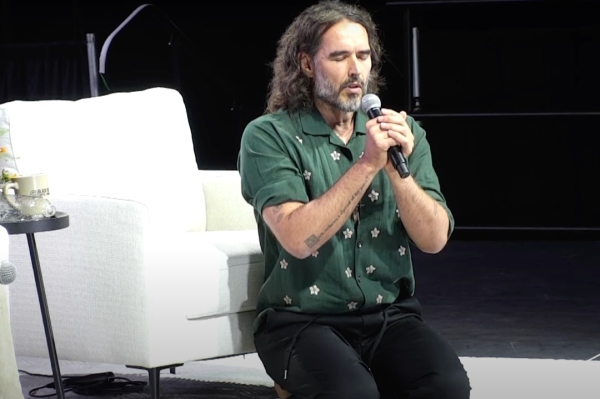Why Carl F. H. Henry (Still) Matters
It's a little book by a dead man from the last generation, and it just might be the road-map for the future of American Christianity. I'm referring to the late theologian Carl F. H. Henry's 1947 book "The Uneasy Conscience of Modern Fundamentalism." This slim little paperback's importance might not seem obvious in a digital whirling world of contemporary Christians, but the issues Henry raised over sixty years ago are more relevant than ever.
When most people think of Carl Henry, they tend to think of his magnum opus, the six-volume "God, Revelation, and Authority," which dealt with the major philosophical and theological challenges to Christian theism and the biblical canon. Some remember his work as a pioneer, along with Billy Graham, in the explosion of the post-World War II evangelical movement. From his place as a founding faculty member at Fuller Seminary to his role as first editor of "Christianity Today" and beyond, Henry was the intellectual godfather of the cause. But, in my view, "Uneasy Conscience" is what matters most for us these days.
Just after World War II, Henry, then a young rising star in the Christian firmament, issued a jarring manifesto calling for a theologically-informed and socially-engaged evangelicalism. Henry warned that American Christianity, on the Right and on the Left, was headed for irrelevance, toward being the equivalent of a wilderness cult. His agenda wasn't simply an updating of style and presentation (although he had written a book on church publicity). The issues at root were about misguided views on the kingdom of God.
He was right. And he still is.
Henry was concerned about two fronts: detached fundamentalism and social gospel liberalism. The liberals, Henry insisted, had replaced the gospel with a political program. Instead of seeing the primary mission of the church in terms of God's reconciling work in Christ to forgive sins, the liberals were busy grinding out policy papers on nuclear policy. Liberals saw the kingdom as a program for public righteousness, often enacted legislatively.
At the other extreme, though, Henry warned, conservatives over-reacted to the social gospel. They spoke of the kingdom of God, but acted as though it were wholly future. These conservatives embraced an otherworldly vision of salvation, that was mostly about getting souls to heaven at death. They held to an inordinately spiritual vision of the church, in which the church's mission was about merely "spiritual" matters such as evangelism and addressing personal morality.
By severing social concerns from the gospel, the conservatives had, Henry warned, conceded these issues to liberal Protestants and, ultimately, to their more radical successors. Neither side, Henry argued, understood the "already" and "not yet" tension of the kingdom of God, a tension that was about more than how we view the last things. It is about also how we see salvation and the church.
In 1947, an evangelical consensus on the kingdom seemed impossible. After all, the coalition of conservative Protestants was united around the "fundamentals" of biblical inerrancy, substitutionary atonement, bodily resurrection, personal regeneration, and so forth. But these evangelicals often couldn't agree about how such questions even as whether the Sermon on the Mount applies to believers today or only to Israel in a future millennial kingdom.
Remarkably, that has changed. In the years since, evangelical theology has embraced, at near universal consensus levels, a vision of the kingdom that is both "already and not yet." The kingdom understandings that previously kept fundamentalists isolated have now been corrected by a more biblical portrait of the church, and the cosmic scope of salvation. This provides the basis for a renewed and biblically informed evangelical public theology. While the theory has developed in positive ways, though, Henry's primary issue remains. Without a holistic vision of the kingdom of God, evangelicals will continue to split up the gospel in ways that can make Jesus unrecognizable to the culture around us. While there are few arguments these days about whether the Lord's Prayer applies to the church age or whether the church is "Plan B" in the purposes of God, other, similar confusions remain.
On the one hand, the tactics of the old social gospel liberals have been inherited, ironically enough, by the Religious Right. Once again, in many quarters, a political program has replaced the gospel. Just listen to Christian talk radio for an hour and see where the emphasis is.
On the other hand, there is still a growing body of Christians who speak as though the kingdom is either wholly future or wholly spiritual. Look at the ongoing efforts to divide concern for evangelism from a concern for justice, the mission of the church in caring for people's souls from caring for their bodies. There are rarely prophecy charts involved anymore, but it is, at heart, the same old dispensationalist hermeneutic involved, seeking to "rightly divide" the parts of Jesus' ministry that apply to us now from those that will only apply later. In some cases, there is outright suspicion about "kingdom talk" at all, for fear that "kingdom" is a stalking horse for doing away with the gospel.
When evangelicals contrast the "gospel" with the "kingdom," we are right back at Scofield, without even knowing it. And, as in Henry's day, this means that concern for poverty, family stability, homelessness, orphan care, racial reconciliation, and a host of other concerns will then be filled in by those who deny the central truths of the gospel. And that's a shame.
Henry's "Uneasy Conscience of Modern Fundamentalism" is perhaps the most important evangelical book of the twentieth-century. It is just as relevant as it was in 1947, and should be read again by all those with a serious commitment to applying a kingdom vision to every aspect of life. The kingdom Jesus inaugurated spoke to the whole person, to spiritual lostness, to physical sickness, to material poverty, to the need for community. A church that joins Jesus in preaching the kingdom will too. We need that reminder every generation, perhaps especially now. The evangelical conscience is, after all, still uneasy after all these years.
An adapted version of this article originally ran on January 22, 2012 here and a Q Ideas.





















